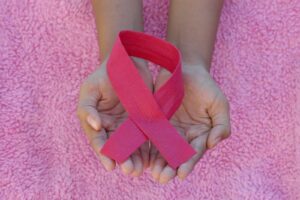Key Takeaways
- Ovarian cancer awareness is vital for early diagnosis and effective treatment.
- Understanding symptoms and risk factors can lead to better prevention strategies.
- Community support and educational initiatives can enhance the quality of life for those affected.
Understanding Ovarian Cancer
Ovarian cancer, often referred to as a “silent killer,” poses a unique challenge due to its ability to remain symptomless in its early stages. This insidious nature underscores the need for heightened awareness and education among women and healthcare professionals. A comprehensive understanding of early symptoms and treatment options can be a game-changer in the fight against this disease. Informed individuals are more likely to engage in effective interventions like clinical trials for ovarian cancer, which offer access to novel therapies and potential advancements in care. Through education, women are empowered to make savvy decisions about their health care, enhancing the prospects of a favorable outcome and an improved quality of life.
Identifying Symptoms and Risks
The symptoms of ovarian cancer are often subtle and may be easily mistaken for less severe conditions, complicating early detection. Women commonly experience symptoms such as persistent abdominal bloating, pelvic discomfort, and early satiety, which can be misattributed to gastrointestinal disorders. According to the American Cancer Society, recognizing these symptoms as potential indicators of ovarian cancer is essential for prompt medical intervention. In addition, personal and familial risk factors, including age, reproductive history, and genetic mutations like BRCA1 and BRCA2, should be monitored. By increasing awareness and understanding of these risks, women are better positioned to discuss symptoms with their healthcare providers, facilitating earlier diagnoses and intervention strategies that can dramatically improve outcomes.
Prevention Strategies
Ovarian cancer might be difficult to prevent because of the numerous contributing variables. However, you can drastically lower your risk by leading a health-conscious lifestyle. This entails limiting the consumption of processed foods and red meat while maintaining a balanced diet of fruits, vegetables, and whole grains. Frequent exercise is crucial since it improves general health and reduces cancer risk. Genetic testing is also an essential preventive measure, especially for people who have a family history of ovarian or similar cancers. This test provides information on inherited risks, allowing for preventative actions and individualized healthcare strategies. The Mayo Clinic emphasizes the critical role of genetic testing and counseling in developing individualized prevention and early detection strategies, allowing women to take proactive steps in their cancer prevention journeys.
The Role of Community Support
The emotional toll of an ovarian cancer diagnosis can be immense, making community support essential for those navigating this challenging path. Support groups provide a sanctuary for sharing experiences and obtaining encouragement, whether through in-person meetings or digital platforms. Such communities foster a sense of belonging, reminding individuals they are not alone in their fight. Besides emotional sustenance, these groups offer practical advice for managing treatment side effects, accessing resources, and navigating healthcare systems. The collaborative environment of support groups aids in psychological resilience, representing a crucial pillar in the holistic approach to cancer care and recovery. These interactions can restore hope, ultimately contributing to better mental health and positive life adaptation.
The Importance of Clinical Trials
Clinical trials form the backbone of oncological advancements, serving as gateways to cutting-edge treatments and therapies. They play a pivotal role in developing new treatment standards and improving the understanding of ovarian cancer. Participants gain access to the latest therapeutic options, which may surpass conventional treatments in efficacy. Furthermore, their participation fuels scientific research, discovering crucial data for future therapies and interventions. Engaging with healthcare professionals in discussions about clinical trial availability ensures an informed decision-making process regarding participation. Notably, trials often cover the spectrum of patient needs, including those who might have exhausted traditional treatments, providing hope and possibilities where few had existed.
Educating and Advocating
Education and advocacy stand as formidable tools in reshaping the public narrative around ovarian cancer. Individuals can disseminate vital knowledge widely by participating in educational initiatives and awareness campaigns. Grassroots efforts, including workshops and information sessions, empower communities with facts and stories that humanize the struggle and galvanize action. Advocacy efforts influence policy changes, push for more research funding, and ensure equitable access to screening and treatment resources. Education and advocacy contribute to a well-informed society that supports early detection, proactive health management, and improved cancer care infrastructure. This ultimately leads to higher survival rates and a better quality of life for those affected.
Maintaining Quality of Life
In cancer care, maintaining quality of life is equally significant as tumor eradication. A multifaceted approach that blends physical, emotional, and social wellness ensures that patients survive and thrive. Physical health can be supported through carefully curated exercise regimens and a balanced diet tailored to tolerate treatment side effects. Emotional support is garnered through therapy, meditation, and mindful practices that clear mental clutter and focus on positive engagement. Social activities and community involvement foster connections and combat isolation, which can prevail during lengthy treatments. This holistic approach ensures that individuals retain agency over their lifestyles, fostering resilience and facilitating adaptation during their cancer journey. It emphasizes that life, even amid cancer, can be vibrant, meaningful, and fulfilling.




